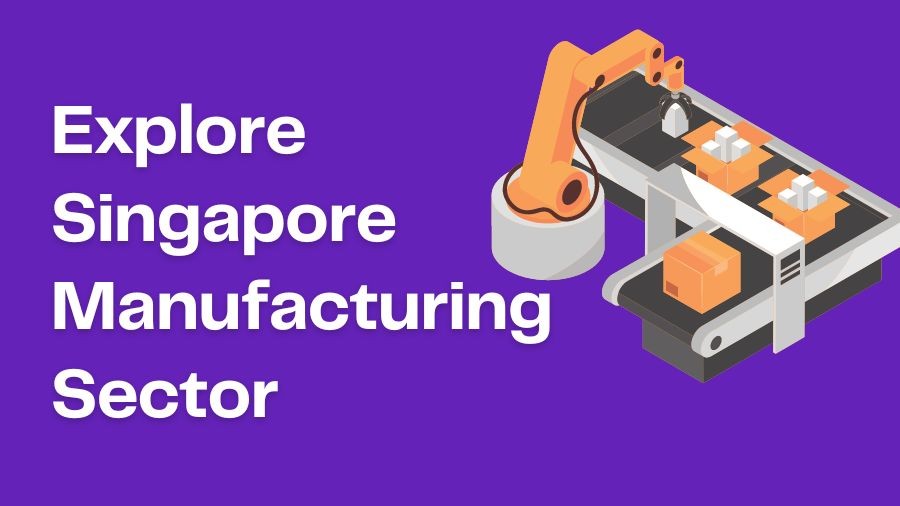Singapore’s Manufacturing Sector Faces New Challenges and Opportunities in 2024
31 July, 2024

Singapore's manufacturing sector is undergoing significant transformation in 2024. This change is driven by technological advancements, evolving market needs, and new business strategies. Both challenges and opportunities define the current landscape, reshaping the industry in various ways.
Singapore’s manufacturing sector is evolving in 2024 with advancements in AI and IoT boosting efficiency. Startups and technology businesses are driving innovation, while import-export dynamics remain crucial. The sector is diversifying into biotechnology and green technologies amid global economic shifts.
The country remains a crucial player in the global manufacturing arena. Singapore's strategic location and robust infrastructure support its role as a key hub for technology and manufacturing businesses. The sector has consistently attracted investment due to its advanced facilities and innovative practices.
Technology continues to be a driving force behind the transformation of Singapore's manufacturing companies. Advanced technologies such as artificial intelligence (AI) and the Internet of Things (IoT) are now integral to production processes. These technologies enhance efficiency and productivity, offering companies a competitive edge in the global market.
Singapore’s technology businesses are at the forefront of this change. Companies are investing in digital solutions to streamline operations and reduce costs. Automation, for instance, is increasingly common in manufacturing plants, allowing for precision and speed that manual processes cannot match. This shift is helping businesses respond more effectively to market demands.
Startups in Singapore are also contributing to the sector’s evolution. Innovative solutions and fresh ideas from these emerging companies are driving new trends. These startups often focus on niche markets or offer disruptive technologies that challenge traditional manufacturing practices. Their presence is a testament to the dynamic nature of Singapore’s market.
The import-export dynamics are another crucial aspect of Singapore's manufacturing industry. The country’s strategic location as a maritime hub facilitates efficient global trade. Manufacturers in Singapore benefit from a well-established network of ports and logistics services, which supports the seamless movement of goods across borders.
Recent trends indicate that Singapore's manufacturing sector is diversifying its focus. While electronics and precision engineering remain strong, there is growing interest in sectors like biotechnology and green technologies. This diversification reflects the broader shift towards sustainable and high-tech industries.
Economic conditions have a significant impact on Singapore’s manufacturing market. Global economic fluctuations and trade policies can affect the sector’s performance. For instance, trade tensions between major economies might disrupt supply chains, influencing production and export activities.
Despite these challenges, Singapore’s manufacturing sector shows resilience. Companies are adapting by exploring new markets and enhancing their capabilities. Investment in research and development is a key strategy, allowing businesses to innovate and stay ahead of competition.
The Singapore market's characteristics also play a role in shaping the manufacturing landscape. The country’s emphasis on quality and precision aligns with the high standards required in the global market. This focus helps Singaporean manufacturers maintain a reputation for excellence and reliability.
The government’s support for the sector is another significant factor. Various initiatives and incentives aim to boost productivity and innovation. Programs that encourage technology adoption and skills development are crucial for keeping Singapore’s manufacturing industry competitive.
Sustainability is becoming increasingly important in the manufacturing sector. Companies are adopting eco-friendly practices and seeking ways to reduce their environmental impact. This trend is driven by both regulatory requirements and consumer demand for sustainable products.
Singapore’s strong emphasis on innovation is evident in its approach to manufacturing. The integration of advanced technologies and new business models is shaping the future of the sector. Companies are investing in digital transformation to enhance their operations and create new opportunities.
The evolving landscape of Singapore’s manufacturing industry reflects broader global trends. As technology advances and market conditions shift, companies must stay agile and responsive. The sector's ability to adapt and innovate will be key to maintaining its competitive position in the global market.
In summary, Singapore's manufacturing sector is experiencing significant changes driven by technological advancements, evolving market needs, and new business strategies. The industry is navigating both challenges and opportunities, with a strong focus on innovation, sustainability, and strategic adaptation. As the sector continues to evolve, it will remain a critical component of Singapore’s economic landscape.
TAG(s):
